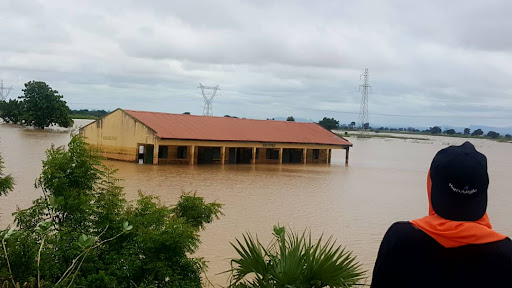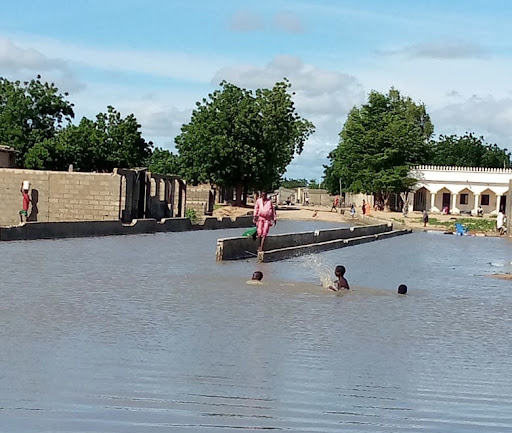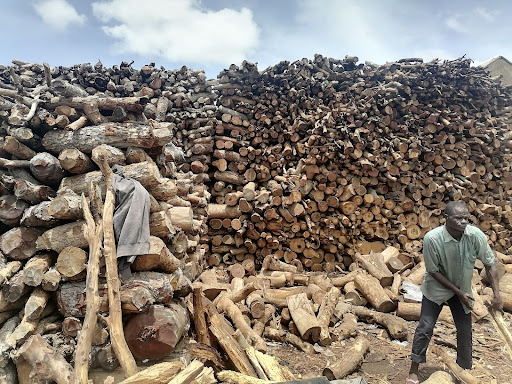Fellows Spotlight The Effects Of Climate Change On Their Communities
HumAngle Accountability Newsletter

Welcome again to another edition of our newsletter, where we share how busy our fellows have been over the past month.
Headlines this September have not fallen short of highlighting the heavy rainfall and increased flooding of local communities, rendering many people homeless, and means of livelihood destroyed by water.
If you’ve been keeping up to date with our reports, then you know that we have been at the very forefront of telling these underreported stories, and going the extra mile to ensure that these stories are told from the mouths of those who went through these ordeals themselves.
Our fellows have been putting the experience they have gained over the four months of the fellowship training programmes to report issues around climate change at the grassroots, which have now materialised into well-detailed and analysed reports.
Our fellows continue to make our HumAngle family proud with their great strides, but without a hint of sadness, as the gloom of the programme coming to a close continued to draw nearer. Nonetheless, we are more than optimistic that these final two months of the fellowship will churn out our fellows’ best work yet.
Don’t forget to follow all the latest with our fellows by following the hashtag, #HumAngleFellowship22 on Twitter.
A Problematic Drainage Project Increases Flood Risk To A Community In Northeast Nigeria
The construction of drainage channels in the Garandam community of Borno was needed to control flooding; however, the project has so far been problematic for the residents.
Babagana Bulama (Borno Central)

“Is this a wall or drainage? I don’t know” said Yafati Ali.
Yafati Ali was reacting to a drainage and road project being constructed in her community, Bulabulin Garandam, in Borno, northeastern Nigeria. It is a project the people have yearned for a long time, and the state government has recently answered that call.
The contract was among many such projects within the Maiduguri Metropolitan Council (MMC) and Jere Local government area, awarded in the 2022 budget at the cost of 2.8 billion to a local company.
The ward head Bulama Modu took a HumAngle reporter around the contract site, including a section starting from a mosque to an area linking a biscuits company, explaining that the drainage as presently being constructed will create new problems for them rather than alleviate them.
The drainage construction started above the ground as its foundation instead of the usual standard of digging some inches into the ground. The Ward head, Bulama Modu, while reacting to it said that “the nature of the drainage construction makes it hard for elderly people and children to pass. If vehicles wanted to enter particular streets or park close to their houses, they would have to go round to other areas and locations to park. Rainwater that normally gathers in some places in our areas now goes into our houses”.

Fellow Of The Month
Our fellow of the month for September is Babagana Bulama from Borno Central. Babagana has proven himself to be an apt reporter and an excellent team player. He produced two brilliant reports this month, demonstrating how much the mentorship contributed to his growth as a reporter.
Disappearing Trees: A Glimpse Into Adamawa’s Deforestation Problem
The vegetation cover in parts of Adamawa is disappearing due to high energy prices and demand for timber and space.
Aisha Adamu Njidda and Hantis Wandaje (Adamawa North and Adamawa South)

The indiscriminate cutting down of trees in Nigeria’s northeastern state of Adamawa contributes to a pyramid of environmental and economic challenges, including flood and loss of livelihood. The leader of the farmers’ associations, Malam Umar Suleiman, describes it as a significant problem for farmers because it leads to erosion, “which is severely affecting our farming activities.”
Energy needs, poverty, housing demand, and appetite for timber have encouraged uncontrolled deforestation across Adamawa. The government has also been complacent in the loss of vegetation due to poor conservation regulations and adverse effects of infrastructure construction.
Similar factors are contributing to the trend in other parts of the country. For example, between 1990 and 2005 alone, Nigeria was reported to have lost 21 per cent of its forest area.
“Apart from the direct impacts, unrestrained removal of trees without adequate reforestation also diminishes climate change mitigation. It has a duo effect of reducing carbon dioxide absorption and increasing emissions,” says HumAngle’s Head of Climate Security desk, Murtala Abdullahi.
Support Our Journalism
There are millions of ordinary people affected by conflict in Africa whose stories are missing in the mainstream media. HumAngle is determined to tell those challenging and under-reported stories, hoping that the people impacted by these conflicts will find the safety and security they deserve.
To ensure that we continue to provide public service coverage, we have a small favour to ask you. We want you to be part of our journalistic endeavour by contributing a token to us.
Your donation will further promote a robust, free, and independent media.
Donate HereStay Closer To The Stories That Matter





